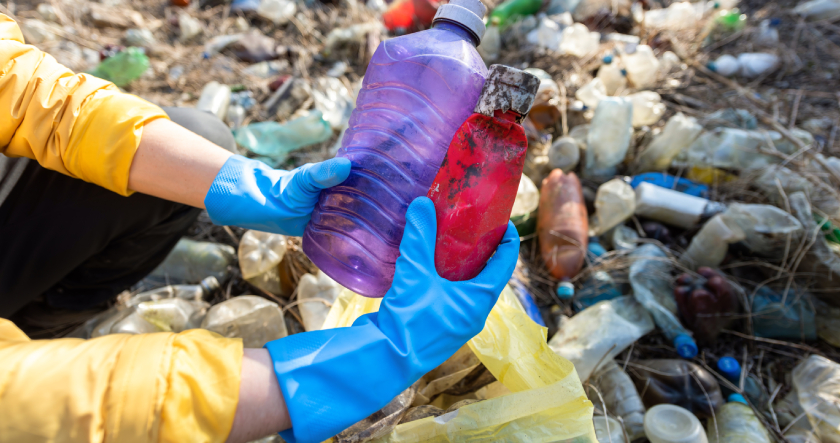Synopsis –
Navigating EPR certification for plastic waste can be complex, but businesses must meet regulatory standards and contribute to environmental sustainability. This blog provides a comprehensive guide to understanding the Extended Producer Responsibility (EPR) certification process, specifically for plastic waste. We delve into the essential steps in obtaining an EPR certificate, from understanding EPR compliance to meeting specific requirements for plastic waste management. Learn about the types of EPR certifications, including those for plastic packaging and plastic waste, and how businesses can align with regulations set by the Central Pollution Control Board (CPCB). This blog will also explore the benefits of EPR certification for plastic waste, including improved waste management practices, reduced environmental impact, and enhanced brand reputation. Whether you’re a business owner or a compliance officer, this guide will equip you with the knowledge to navigate the EPR certification process effectively and achieve sustainability goals.
Table of Content
- Introduction to EPR Certification for Plastic Waste
- Understanding EPR Compliance for Plastic Waste
- The EPR Certification Process
- Types of EPR Certificates for Plastic Waste
- Key Requirements for EPR Certification
- Benefits of EPR Certification for Plastic Waste
- Common Challenges in Obtaining EPR Certification
- How to Choose an EPR Certification Consultant
- Case Studies- Successful EPR Certification for Plastic Waste
- Conclusion and Next Steps
Introduction to EPR Certification for Plastic Waste
Extended Producer Responsibility (EPR) is crucial to modern waste management practices, particularly for plastic waste. With growing environmental concerns, the need for effective plastic waste management has never been more urgent. EPR certification ensures businesses take responsibility for their plastic products throughout their lifecycle. This guide will explore the essentials of EPR certification for plastic waste, offering insights into the process, benefits, and challenges associated with obtaining and maintaining compliance.
Understanding EPR Compliance for Plastic Waste
EPR compliance refers to the regulatory framework that requires producers to manage the end-of-life of their products. For plastic waste, this means implementing systems to collect, recycle, and safely dispose of plastic products. Compliance with EPR regulations involves adhering to guidelines set by authorities such as the Central Pollution Control Board (CPCB) in India. EPR compliance helps manage plastic waste effectively and aligns businesses with sustainability goals and legal requirements.
The EPR Certification Process
Obtaining an EPR certification for plastic waste involves several key steps. First, businesses must develop a waste management plan that details how they will handle plastic waste, including collection, recycling, and disposal. This plan is then submitted to the CPCB or an authorized body for review. Upon approval, the business receives an EPR certificate, demonstrating compliance with regulations. The certification process also includes regular audits and reporting to ensure adherence to EPR requirements. Understanding each process step is essential for achieving and maintaining EPR certification.
Types of EPR Certificates for Plastic Waste
EPR certificates can vary based on the type of plastic waste and the specific requirements of different regulatory frameworks. Key types include-
- EPR Certificate for Plastic Packaging
- EPR Certificate for Plastic Waste
- EPR Certificate for Brands
Each type of certificate addresses different aspects of plastic waste management, from packaging to general waste. Understanding these variations helps businesses obtain the appropriate certification for their needs.
Key Requirements for EPR Certification
To achieve EPR certification, businesses must meet several requirements-
- Develop a Comprehensive Waste Management Plan
- Ensure Proper Collection and Recycling Systems
- Submit Documentation and Reports to Regulatory Bodies
Meeting these requirements involves detailed planning and adherence to specific guidelines provided by the CPCB. Regular updates and compliance checks are also necessary to maintain certification status.
Benefits of EPR Certification for Plastic Waste
EPR certification offers numerous benefits for businesses-
- Enhanced Waste Management Practices
- Improved Environmental Impact
- Increased Brand Reputation and Consumer Trust
By committing to EPR certification, businesses comply with legal requirements and contribute to a more sustainable future. This commitment can enhance a company’s reputation, attract environmentally-conscious consumers, and support broader sustainability goals.
Common Challenges in Obtaining EPR Certification
While EPR certification is beneficial, businesses may encounter challenges-
- Complex Documentation Requirements
- Managing Hazardous Plastic Waste
- Staying Updated with Regulatory Changes
Addressing these challenges involves seeking expert advice, staying informed about regulations, and implementing robust waste management systems.
How to Choose an EPR Certification Consultant
Selecting the right EPR certification consultant can significantly impact the certification process. Key factors to consider include-
- Expertise in Plastic Waste Management
- Experience with EPR Certification
- Reputation and Client References
An experienced consultant can provide valuable guidance, streamline the certification process, and ensure compliance with all regulatory requirements.
Case Studies- Successful EPR Certification for Plastic Waste
Examining case studies of businesses that have successfully obtained EPR certification provides practical insights into the process. These case studies highlight effective strategies, common pitfalls, and the benefits realized by companies that have achieved compliance.
Conclusion and Next Steps
Achieving EPR certification for plastic waste is crucial to sustainable waste management. Businesses must develop a comprehensive waste management plan, adhere to regulatory requirements, and seek expert guidance to navigate the certification process successfully. By committing to EPR compliance, companies can enhance their environmental performance, improve their brand reputation, and contribute to a more sustainable future.
FAQs
EPR certification for plastic waste is a regulatory requirement that mandates businesses to manage the end-of-life of their plastic products. This involves developing a comprehensive waste management plan that includes plastic waste collection, recycling, and disposal. By obtaining an EPR certificate, companies demonstrate their commitment to environmental sustainability and compliance with Extended Producer Responsibility (EPR) regulations. The certification is issued by regulatory bodies such as the Central Pollution Control Board (CPCB) and ensures that businesses adhere to standards for managing plastic waste effectively.
The EPR certification process for plastic waste involves several key steps:
- Develop a Waste Management Plan: Businesses must create a detailed plan outlining how to handle plastic waste, including collection and recycling processes.
- Submit Documentation: The plan and other required documents are submitted to the CPCB or an authorized body for review.
- Certification Review: The submitted documents are reviewed to meet regulatory standards.
- Receive Certification: Once approved, businesses receive an EPR certificate, signifying compliance with plastic waste management regulations.
Ongoing Compliance: Regular audits and reporting are required to maintain certification and ensure continued adherence to EPR requirements.
Obtaining an EPR certificate for plastic waste offers several benefits:
- Improved Waste Management: Ensures effective systems for collecting, recycling, and disposing plastic waste.
- Enhanced Brand Reputation: Demonstrates a commitment to environmental sustainability, which can attract environmentally-conscious consumers.
- Regulatory Compliance: Helps businesses meet legal requirements and avoid potential fines.
Environmental Impact: Contributes to reduced plastic pollution and supports a more sustainable waste management system.
Businesses may encounter several challenges during the EPR certification process:
- Complex Documentation: Preparing and submitting the required documentation can be intricate and time-consuming.
- Managing Hazardous Waste: Handling and recycling hazardous plastic waste requires special considerations and compliance with additional regulations.
- Regulatory Changes: Maintaining evolving EPR regulations and standards can be challenging.
Cost and Resource Allocation: Implementing and maintaining effective waste management systems may involve significant investment and resource allocation.
Selecting the right EPR certification consultant is crucial for navigating the certification process effectively. Businesses should consider:
- Expertise in Plastic Waste Management: Look for consultants with a proven track record in managing plastic waste and obtaining EPR certification.
- Experience with EPR Certification: Ensure the consultant has experience with the specific requirements and processes of EPR certification.
- Reputation and Client References: Check the consultant’s reputation and seek references from previous clients to gauge their effectiveness and reliability.
Comprehensive Services: Choose a consultant who offers a full range of services, including preparation, submission, and ongoing compliance support.


